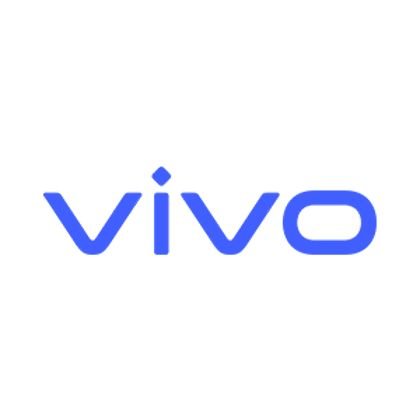
As artificial intelligence (AI) continues to advance, the need for ethical practices in its development and deployment has become more crucial than ever. Ensuring that AI systems are fair, transparent, accountable, and secure is vital for maintaining public trust and avoiding unintended consequences. To help professionals and organizations align with best practices, several certifications have emerged that focus specifically on ethical AI practices. This article explores the top certifications for ethical AI practices in 2024, highlighting their objectives, content, and benefits for individuals and organizations.
1. AI Ethics Certification by the IEEE
Overview:
The IEEE (Institute of Electrical and Electronics Engineers) offers one of the most recognized certifications in AI ethics, which focuses on global standards for AI development. The IEEE AI Ethics Certification is designed to help professionals understand and apply ethical principles in the creation and deployment of AI systems.
Key Features:
- Global Standards Alignment: Based on globally recognized IEEE standards for AI ethics, such as the “IEEE Global Initiative on Ethics of Autonomous and Intelligent Systems.”
- Comprehensive Curriculum: Covers key topics like fairness, transparency, accountability, bias mitigation, data privacy, and human rights.
- Target Audience: AI developers, data scientists, project managers, and executives interested in ethical AI practices.
Benefits:
- Recognized globally as a benchmark for ethical AI practices.
- Provides deep insights into ethical considerations, standards, and best practices.
- Helps organizations demonstrate their commitment to ethical AI to stakeholders and customers.
2. AI Ethics and Governance Certification by AI4ALL
Overview:
AI4ALL, a non-profit organization focused on increasing diversity and inclusion in AI, offers a certification program on AI ethics and governance. This certification is designed to build awareness and understanding of the ethical challenges and considerations in AI.
Key Features:
- Focus on Inclusion: Emphasizes inclusive AI practices and the importance of diversity in AI development.
- Interactive Modules: Combines theoretical learning with interactive case studies and practical applications.
- Flexible Learning: Available online, allowing participants to learn at their own pace.
Benefits:
- Equips professionals with the knowledge to create inclusive and fair AI solutions.
- Provides tools for identifying and mitigating ethical risks in AI projects.
- Encourages a diverse approach to AI governance and practices.
3. Certified Ethical Emerging Technologist (CEET) by CertNexus
Overview:
CertNexus offers the Certified Ethical Emerging Technologist (CEET) certification, which focuses on ethical practices across various emerging technologies, including AI. This certification is designed for IT professionals, AI practitioners, and technology managers who want to ensure ethical considerations are integrated into their projects.
Key Features:
- Cross-Technology Coverage: Covers ethics in AI, machine learning, blockchain, IoT, and other emerging technologies.
- Practical Focus: Emphasizes real-world scenarios and case studies to help professionals apply ethical principles in practice.
- Broad Applicability: Suitable for a wide range of professionals involved in technology development and deployment.
Benefits:
- Provides a holistic view of ethics across multiple emerging technologies.
- Helps organizations create responsible AI systems and ensure compliance with ethical standards.
- Enhances credibility and trust among stakeholders.
4. AI Ethics and Human Rights Certification by the Council of Europe
Overview:
The Council of Europe offers an AI Ethics and Human Rights Certification, focusing on human rights-based approaches to AI. This certification is aimed at professionals who want to ensure their AI systems respect human rights, privacy, and ethical guidelines.
Key Features:
- Human Rights Framework: Based on human rights principles, including privacy, non-discrimination, and freedom of expression.
- Legal and Ethical Guidance: Provides a solid understanding of the legal and ethical implications of AI.
- Policy Relevance: Offers insights into the impact of AI on society and policymaking.
Benefits:
- Demonstrates a commitment to human rights and ethical AI practices.
- Equips professionals with the knowledge to navigate complex legal and ethical landscapes.
- Helps organizations align with European and international regulatory requirements.
5. AI Ethics Professional Certification by ForHumanity
Overview:
ForHumanity, a non-profit organization dedicated to AI ethics and auditing, offers the AI Ethics Professional Certification (AIEP). This certification focuses on ethical principles, risk management, and governance in AI.
Key Features:
- Auditing Focus: Teaches professionals how to audit AI systems for ethical compliance.
- Risk Management: Covers risk assessment and management techniques for AI applications.
- Community Engagement: Provides access to a global community of AI ethics professionals.
Benefits:
- Helps organizations build trust through third-party audits and certifications.
- Equips professionals with the skills needed to assess and mitigate AI risks.
- Provides a framework for developing ethical AI governance models.
6. AI Ethics Certification by The Markkula Center for Applied Ethics
Overview:
The Markkula Center for Applied Ethics at Santa Clara University offers a certification program in AI Ethics. This certification focuses on ethical decision-making and provides practical tools for developing and deploying ethical AI systems.
Key Features:
- Ethical Decision-Making Frameworks: Provides tools and frameworks for making ethical decisions in AI development.
- Real-World Case Studies: Utilizes real-world examples to illustrate ethical dilemmas and solutions.
- Interdisciplinary Approach: Combines philosophy, law, technology, and business ethics to create a comprehensive understanding of AI ethics.
Benefits:
- Develops a well-rounded understanding of ethical AI practices.
- Enhances decision-making skills in complex ethical scenarios.
- Prepares professionals to lead ethical AI initiatives within their organizations.
7. Responsible AI Certification by Microsoft
Overview:
Microsoft offers a Responsible AI Certification program designed to train AI professionals in responsible AI development and deployment. This program focuses on integrating ethical AI principles into the design and management of AI projects.
Key Features:
- Microsoft AI Principles: Based on Microsoft’s AI principles, including fairness, reliability, safety, privacy, security, inclusiveness, transparency, and accountability.
- Hands-On Learning: Offers practical exercises and real-world scenarios to reinforce learning.
- Developer Focus: Tailored for developers, data scientists, and AI practitioners who want to build responsible AI systems.
Benefits:
- Provides practical guidance for developing AI systems that are safe, secure, and ethical.
- Enhances skills in managing AI risks and ensuring compliance with ethical standards.
- Offers recognition from a leading technology company, enhancing professional credibility.
8. AI and Data Ethics Certification by Open Data Institute (ODI)
Overview:
The Open Data Institute (ODI) offers a certification in AI and Data Ethics, focusing on ethical data use and AI practices. This certification is suitable for data professionals, AI developers, and organizations looking to adopt ethical AI and data practices.
Key Features:
- Data-Centric Approach: Focuses on ethical data handling, privacy, and security, essential for building ethical AI systems.
- Real-World Applications: Includes case studies and practical examples to illustrate ethical challenges in AI and data use.
- Policy Insights: Offers insights into data governance and ethical AI policy-making.
Benefits:
- Strengthens understanding of ethical data practices in AI development.
- Provides tools for creating transparent and accountable AI systems.
- Helps organizations align with ethical data governance standards.
9. AI Ethics Certification by Oxford University
Overview:
Oxford University offers an AI Ethics Certification program through its online learning platform. This program provides a comprehensive introduction to AI ethics, focusing on both theoretical and practical aspects.
Key Features:
- Academic Excellence: Backed by one of the world’s leading universities, ensuring high-quality content and instruction.
- Comprehensive Curriculum: Covers a wide range of topics, including bias, fairness, transparency, privacy, and ethical AI governance.
- Flexible Learning: Available online, allowing learners to study at their own pace.
Benefits:
- Provides a solid academic foundation in AI ethics.
- Enhances credibility with a certification from a prestigious institution.
- Equips professionals with knowledge applicable to various sectors.
10. AI Ethics Certification by World Economic Forum (WEF)
Overview:
The World Economic Forum offers an AI Ethics Certification as part of its efforts to promote responsible AI practices globally. This certification is designed for AI professionals, policymakers, and executives looking to understand and implement ethical AI principles.
Key Features:
- Global Perspective: Offers a global perspective on AI ethics, including cultural, social, and economic considerations.
- Policy Focus: Emphasizes the role of policy and governance in ethical AI development.
- Collaborative Approach: Encourages collaboration among different stakeholders to promote ethical AI practices.
Benefits:
- Provides insights into global AI ethics standards and policies.
- Helps professionals navigate the complex landscape of AI ethics and governance.
- Enhances the ability to advocate for ethical AI practices within organizations.
Conclusion
In 2024, as AI continues to permeate every aspect of society, ethical considerations have become paramount. The certifications listed above provide valuable opportunities for professionals to deepen their understanding of ethical AI practices and apply them effectively in their work. By obtaining these certifications, individuals and organizations can demonstrate their commitment to ethical AI, enhance their reputation, and contribute to the responsible development and deployment of AI technologies.
Whether you’re an AI developer, data scientist, project manager, or executive, there is a certification tailored to your needs. By investing in ethical AI education, you can help ensure that AI systems are fair, transparent, accountable, and aligned with societal values and human rights.









